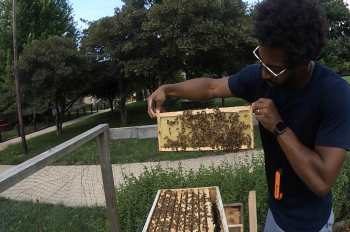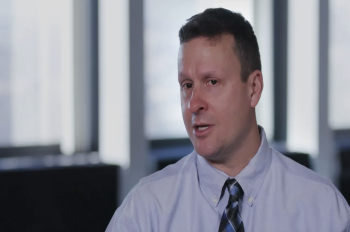An Unlikely Ally: Using E.Coli to Target Antibiotic-Resistant Bacteria

TRANSCRIPT
Associate Professor Seok Hoon Hong: I’m a biochemical engineer.
Biofilms are bacterial aggregates which are formed on any solid surface in the aqueous environment. When the biofilms are formed, they make many problems. About 80 percent of infectious diseases are from the biofilm state.
Bacteria develop many different ways to survive under the conventional antibiotics. When the bacteria forms, they increase the antibiotic resistance, and as a biochemical engineer, I wanted to develop a new approach so we can kill the antibiotic-resistant bacteria much more efficiently.
When you think about our gut microbiome, we have lots of good bacteria that can help our immune system. So when we kill the harmful pathogenic biofilm that causes the disease, we wanted to kill only those harmful biofilm bacteria—but we want to keep the other good bacteria in our body.
So we know a lot about the genetic information about the E.coli. We can easily modify its genetic information so that we can introduce new type of function into the E.coli. I engineer the E.coli, the small bacteria, to produce the antimicrobial protein.
Those antimicrobial proteins can target only the specific pathogens. We can make the target-specific killing. My approach to eradicate the harmful biofilm can be applied to treat many infectious diseases—and also many other areas—I expect within 10 to 20 years.




